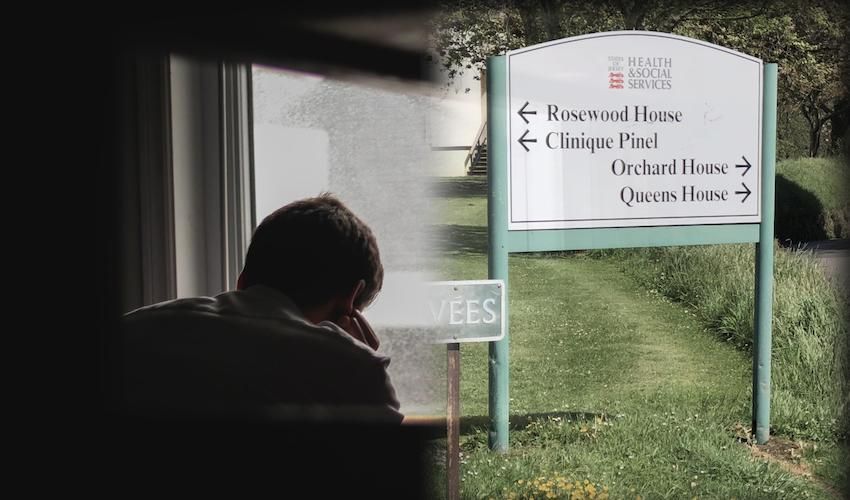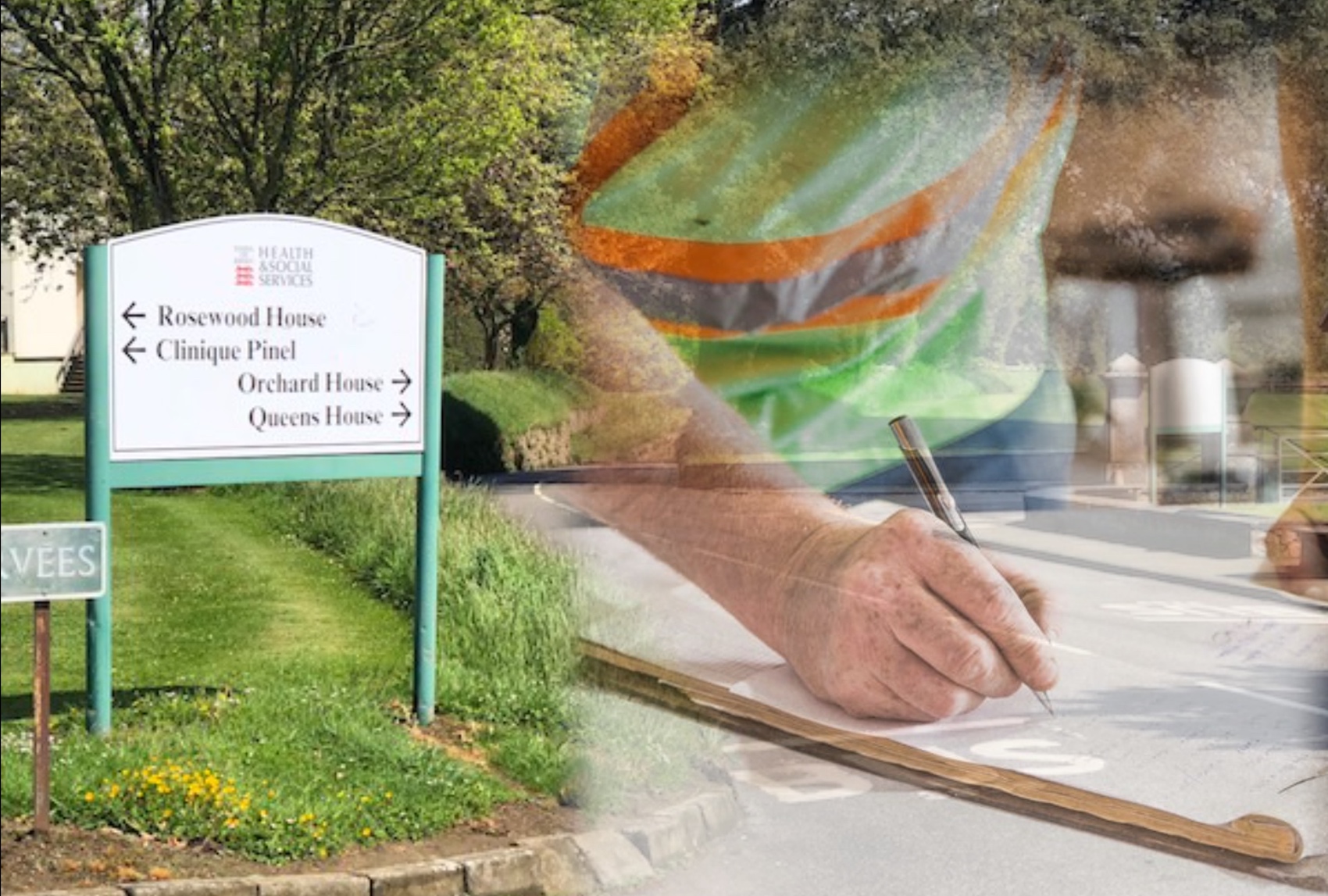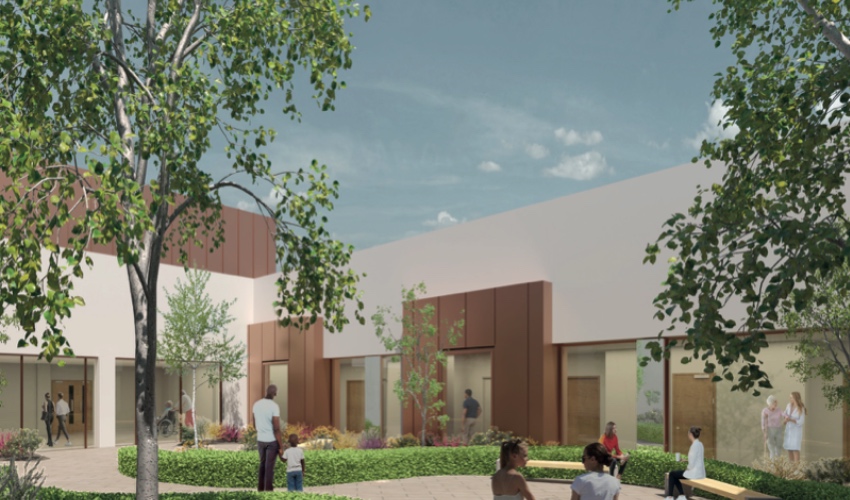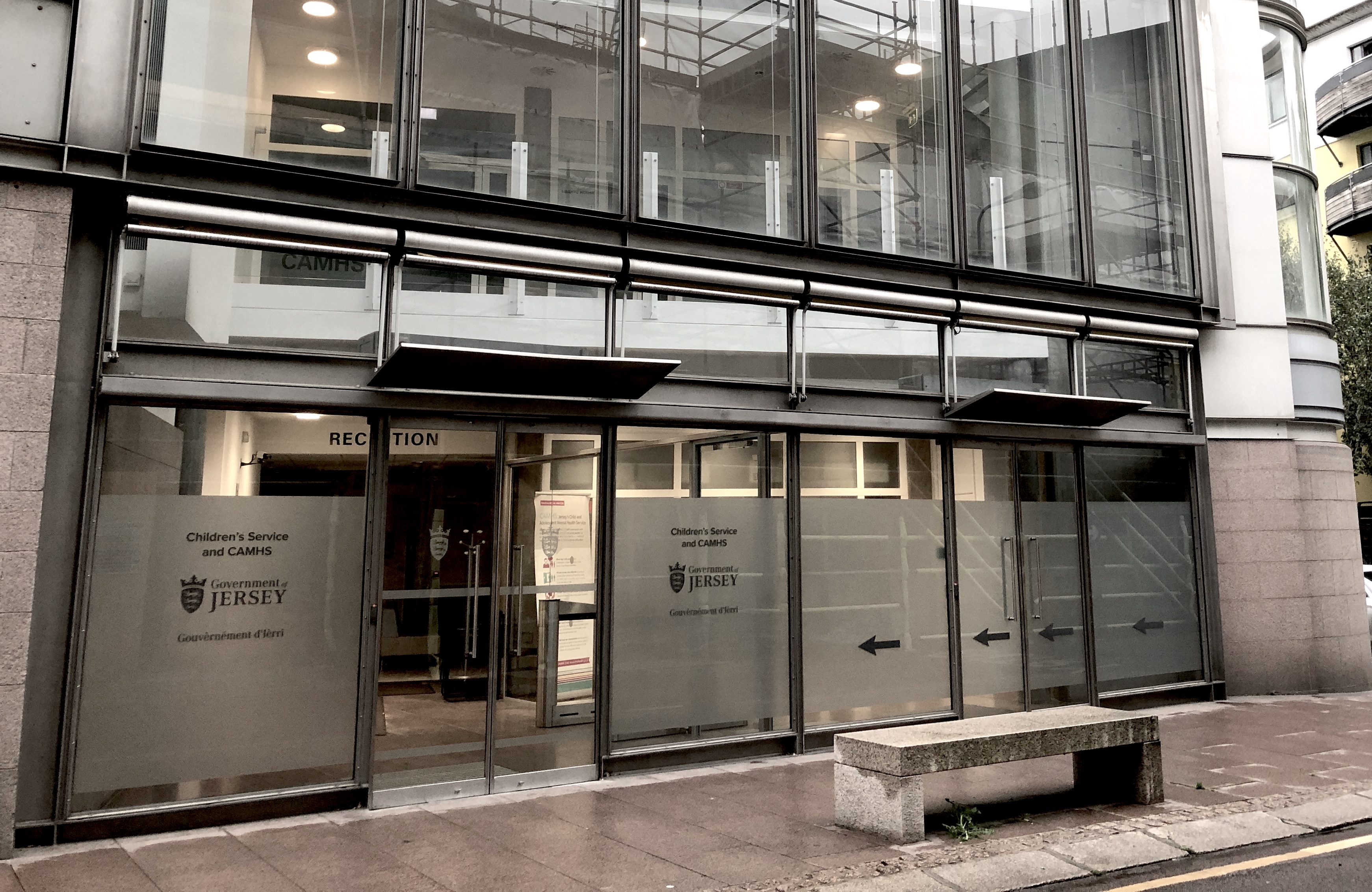


A charity focused on islanders with serious mental illnesses has warned that further delays to revamping facilities like Clinique Pinel will compromise “the dignity and safety” of patients cared for in the area and their families.
In a report submitted to politicians tasked with scrutinising current provisions and funding budgeted in the Government Plan for 2022-2025, ‘Focus on Mental Illness’ noted various problems, and described the facilities some service users are living in as like a “building site”, saying they were reporting "sleep disturbance, and a lack of privacy and dignity” as a result.
Express delves into the issues they highlighted...
While last year's Government Plan saw £3.95m invested into mental health services, including into Orchard House and Clinique Pinel, the charity called out what they saw as a "lack of progress on the development of a suitable, safe, dignified and therapeutic environment for people with severe mental illness.”
Last year, work on the £7.3m development of Clinique Pinel began, as a replacement to Orchard House, touting the creation of 26 new en-suite bedrooms, “a place of safety on the ground floor”, as well as eight ‘overspill bedrooms’ and a tribunal suite/training facility on the first floor.

Pictured: Clinique Pinel has been delayed twice now from its original January 2022 target up to September 2022.
Initially, Infrastructure Minister Deputy Kevin Lewis said that if all went well, the the plan was to have the work completed by January 2022.
However, the development was pushed back by five weeks to the first week of March 2022 due to bad weather, before being pushed back again to a new completion date of 9 September next year due to what the Health Minister called "legacy issues" relating to the existing building and a recent construction boom.
Discussing this issue, Focus On Mental Illness stated that the “unacceptable delays to progressing the work on Clinique Pinel reveals the lack of priority given to improving the quality of care and support to people with severe mental illness.
“Service users are being cared for in what can only be considered as a building site. In addition, service users are reporting a drop in environmental standards within the existing ‘on site’ facility at Orchard House e.g lack of privacy and dignity relating to shared space and window dressings.”
Other issues the charity said could be caused by the delays included:
increasing the cost of the capital project
impairing the recovery of those with severe mental illness
affecting workforce recruitment and retention workforce
reducing the therapeutic space available
potentially affecting the development of the new inpatient facilities being planned for as part of the new hospital development

Pictured: The report expresses concern that the current developments at Clinique Pinel and Orchard House could be used to mitigate the new Overdale hospital inpatient facility.
The charity also said the facilities upgrade programme would benefit from regular involvement from people’s families, as their current involvement was “weak”, and that “while some improvements are planned for, the investment provided is at a basic level and the capital allocation falls short of what is required to deliver a modern therapeutic environment.”
Focus added that: “Had there been additional investment in the charitable sector the sector could have helped reduce the need for inpatient care/admission at this time of rebuilding by providing early intervention support for families as an alternative to hospital admission during periods of crisis.”
The charity further stated its concern that the emphasis on the new build may disrupt delivery of a new mental health inpatient unit at Overdale as part of the new hospital campus.
Orchard House in particular has found itself under pressure again this month, with nearly half of all adult admissions under the mental health law brought there for urgent treatment – up from 15.4% at the same point last year and above the Health Department’s ‘standard’ of under 37%.
Similarly, in September, there were pleas from the CEO of My Voice Jersey to stop “inappropriate admission of children” into Orchard House, with sometimes up to five children having been on the ward - built for adults rather than children - at the same time.
The report notes that whilst the charity welcomes funding for the Child and Adolescent Mental Health Service (CAMHS) and its redesign, it is important that funding is matched in adult services investment to avoid "logjams in the care pathway".
The charity also said it wants to see more emphasis placed on “improving the support for families experiencing challenges to family life where mental illness in the family – an offer which could be delivered in partnership with the charitable sector.”

Pictured: The 'Focus on Mental Illness' report warns of 'log jams' in waiting times if investment in "CAMHS services is not matched to investment in adult services."
“We would like to see investment in evidence-based interventions e.g. Family Therapy and related family interventions which are proven to improve outcomes for families affected by severe mental illness," the charity said, later adding: “Early intervention for adults is as equally important and needs to reflect a family- based model of support (as per NICE recommended guidance) rather than a model of care that perpetuates silo working between CAMHS and Adult Mental Health Services.”
Focus also emphasised the importance of multi-service work to strengthen perinatal care for mothers, rather than simply relying on a single service.
A recent independent review into Adult Mental Health services published earlier this month also emphasised the importance of multi-disciplinary work in supporting individuals with mental health conditions and said Jersey should look to introduce a 'care programme approach' where clinicians, teams, patients and relatives all have input.
The charity also argued that the current and future expenditure on mental health services falls short, and that there is "minimal opportunity for the charitable sector to access and draw on resources that could support the mental health agenda of the Government.”
It hit out at the Government’s commissioning framework - its way of joining up with services provided by third parties like charities - as “weak and anti-competitive and does not facilitate innovation between Government and certain elements within the charitable sector.”

Pictured: The charity slammed the Government's "resource allocation" process as "peppered with self- interest, bias and favouritism rather than a robust independent procurement process and leaves little room for smaller and emerging charities to bring much added value to the system of care.”
The charity further alleged that the process allocating resources to assist with mental health services is "peppered with self-interest, bias and favouritism rather than a robust independent procurement process and leaves little room for smaller and emerging charities to bring much added value to the system of care.”
Arguing that the overall Government plan for mental health funding lacks “coherence”, Focus concluded that the Jersey Care Model “fails to capture the biopsychosocial approach to recovery and is instead orientated around the reconfiguration of a hospital based services and the relocation of some services into the community - hence the cost profile does not reflect what actual expenditure is required to deliver better outcomes for people with severe mental illness.”
In its report, the charity later noted its concern around a ‘one system, one budget’ approach, explaining that it was providing services that the Government should itself be commissioning.
Focus also asked for clarification on how much of the £11.3m from the Health Insurance Fund to support what it called the “ill-conceived” Jersey Care Model would be going towards mental health services, saying they were concerned the money would be directed to “schemes which are not grounded in any health or (mental health) policy or evidence-based approach and backed up by proper cost benefit analysis, quality impact assessment or defined outcomes."
Echoing critical comments about leadership within Jersey's mental health service in the recent independent report, Focus said: “As a charity we would be happy to discuss ideas which could inform the future model of leadership going forward with panel members should they wish to do so.”
Comments
Comments on this story express the views of the commentator only, not Bailiwick Publishing. We are unable to guarantee the accuracy of any of those comments.